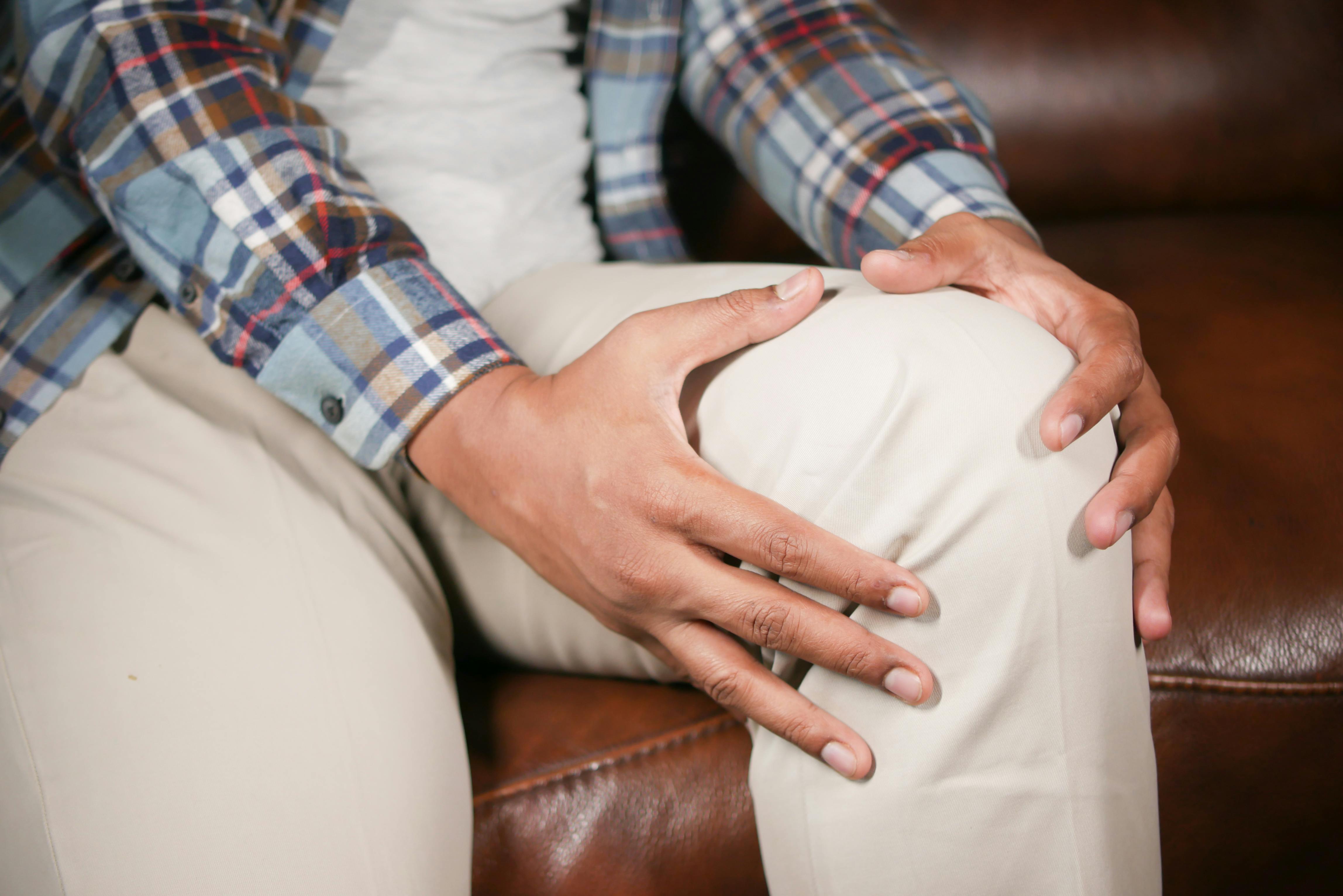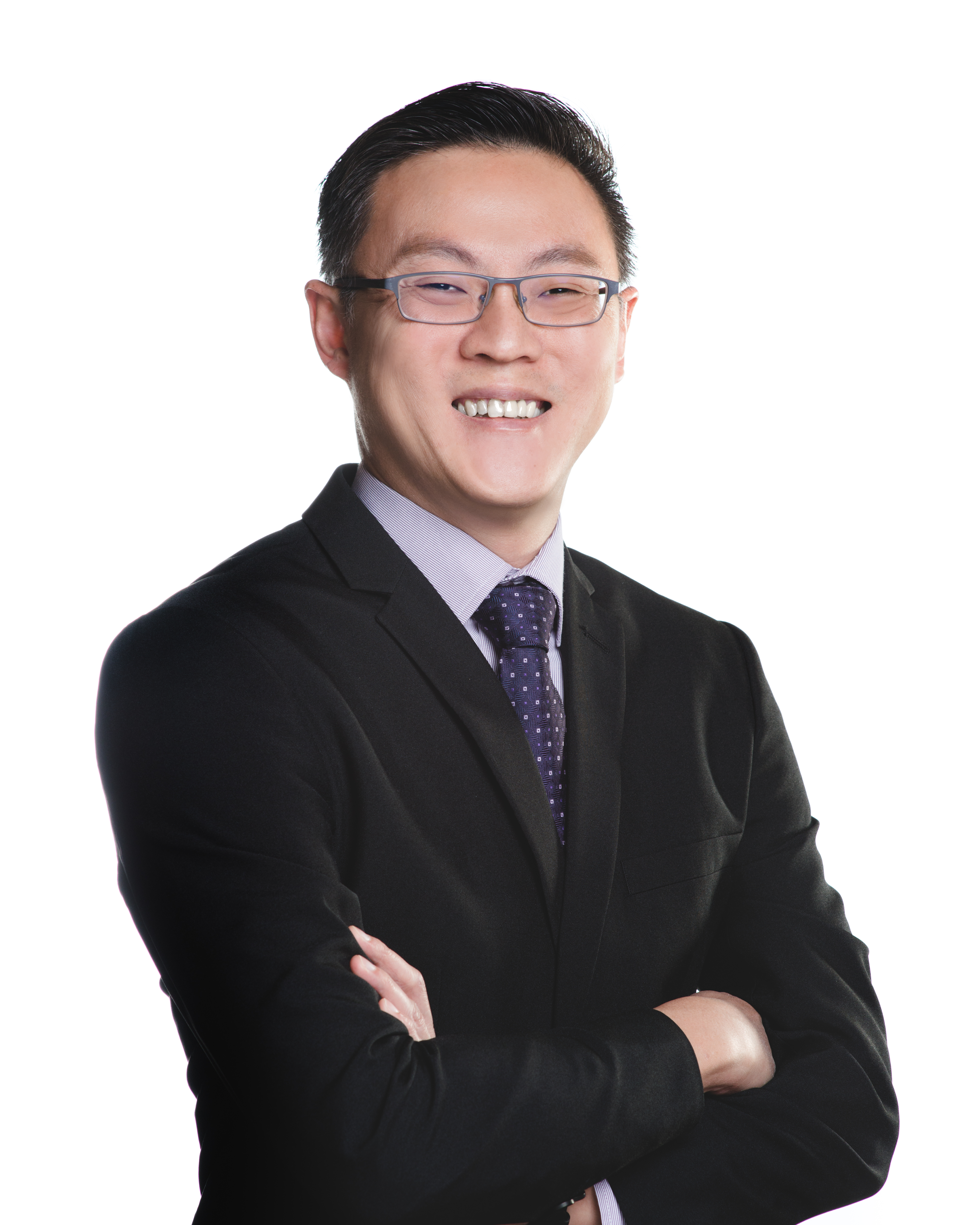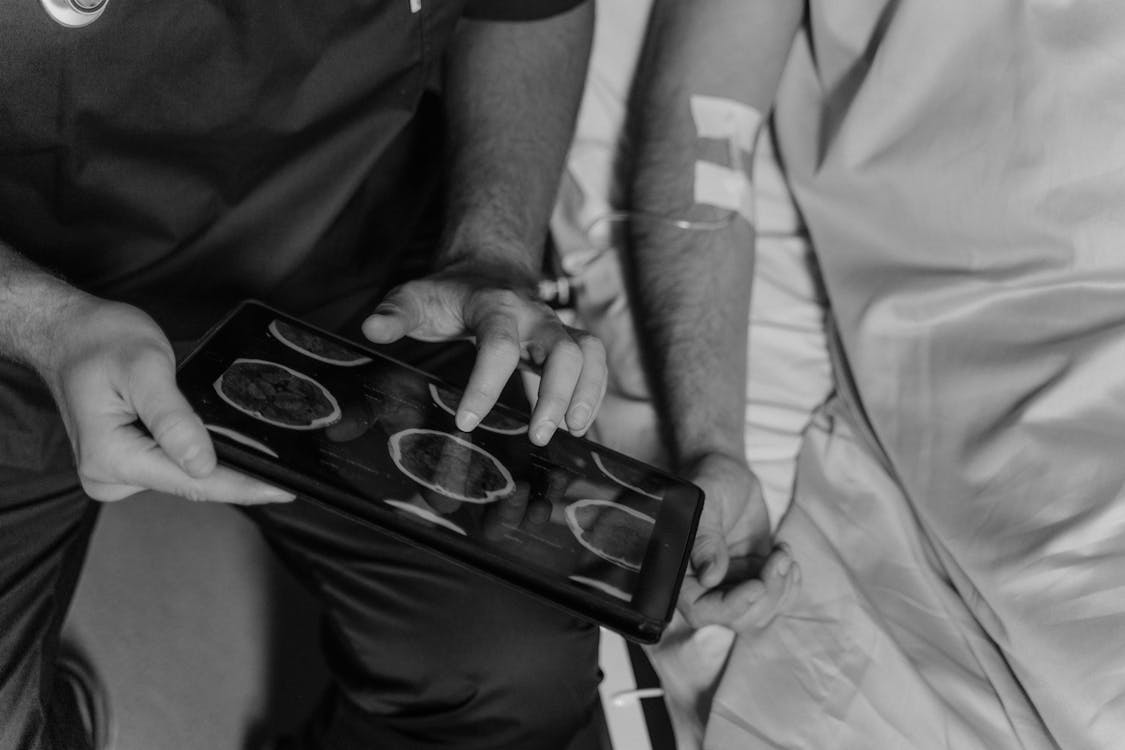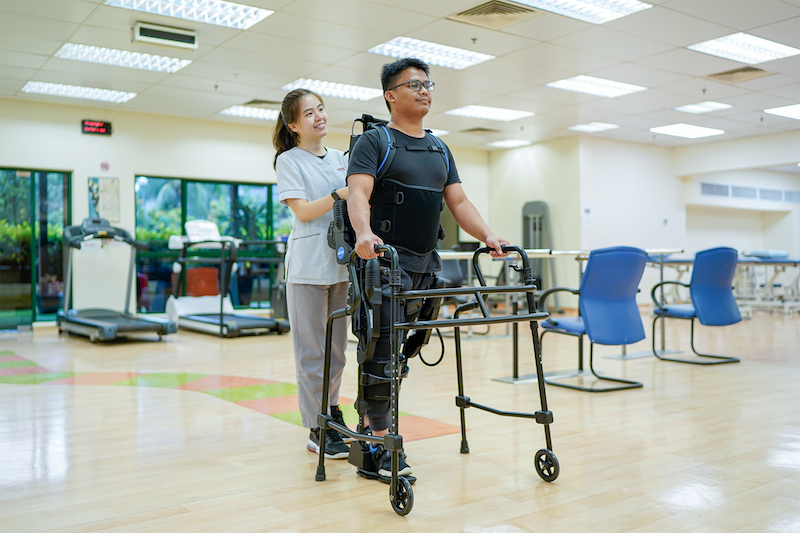Here's How New Technology & Robotics Are Helping Stroke Patients In Their Road To Recovery
These innovative rehab tools help promote neuroplasticity, the brain's ability to form new connections.
Did you know that over 12.2 million people worldwide experience a stroke each year?
Yup, you read that right. According to the World Stroke Organization (WSO), more than 12.2 million new strokes are diagnosed globally every year. That means one in four people over the age of 25 will experience a stroke in their lifetime. In Malaysia, the situation is just as serious, with strokes being a major national health concern.
The Department of Statistics Malaysia (DOSM) lists cerebrovascular diseases, including strokes, as the fourth leading cause of death in 2022.
Strokes can hit suddenly and come with common symptoms like sudden weakness in the arms or legs or face and inability to speak
These symptoms can cause lasting damage, ranging from the loss of the ability to walk, talk and eat to cognitive impairments. Stroke affects not just the person, but their family and friends too.
Men over 65, especially those with a family history of strokes, are at higher risk. Lifestyle choices also play a big role — conditions like diabetes, high cholesterol, high blood pressure, obesity, smoking and physical inactivity further increases the risk of getting a stroke.
For stroke patients, early intervention is crucial — the initial period following a stroke is considered the 'golden window' of recovery
Dr Foong Chee Choong, Consultant Rehabilitation Medicine Physician at Sunway Medical Centre, Sunway City.
Image via Sunway Medical Centre (Provided to SAYS)According to Dr Foong Chee Choong, who specialises in rehabilitation medicine at Sunway Medical Centre, Sunway City (SMC), it is essential to seek medical attention immediately if you suspect of suffering from a stroke. New treatment within the first few hours of stroke can be lifesaving and can minimise its negative impact.
"But not all hope is lost. There are ways to recover for those who have a stroke, especially with the help of advanced technology and robotics during the rehabilitation period," he said.
In Malaysia, advances in technology and robotics are offering new ways to help people recover from strokes
These technologies provide a very specific and intensive therapy that also provides real-time feedback and guidance to the stroke survivor, thus making treatment more effective. Furthermore, these innovations make the rehabilitation session more fun and engaging, thus leading to more intensive training.
These innovations, according to Dr Foong, play a significant role in promoting neuroplasticity — the brain's ability to learn and adapt so that the affected parts of the nervous system can recover
Robotic-assisted gait trainer, for example, can help the stroke survivor to regain balance and walking ability. Another innovative technology such as non-invasive brain stimulation is also commonly used together with physical therapy to facilitate neurological recovery.
The future of stroke rehabilitation and recovery looks even brighter with AI, immersive virtual reality, and brain-computer interface technology on the horizon. AI can create personalised treatment plans, while virtual reality can make rehab more interactive and fun. Ongoing research into all these new technologies and innovations hopefully can bring about an even better recovery after a stroke in the future.
While the shift to using technology such as robotic-assisted gait and upper extremity trainer in rehabilitation has been positive, there are still challenges
Firstly, there is a learning curve for therapists in adopting all these new technologies. However, as recent research has shown the benefits of incorporating technology in stroke rehabilitation, adopting these technologies has become a necessity.
Additionally, Dr Foong believes that these advanced technologies actually complement the conventional rehabilitation approaches used in helping stroke survivors recover.
With ongoing advancements, Dr Foong believes that stroke patients in Malaysia can look forward to faster, more personalised recoveries in the near future
Established in 1999, SMC is Malaysia's largest private quaternary hospital, featuring 724 licensed beds and over 60 specialities and is celebrating its 25th anniversary this year.
With 28 Centres of Excellence and a multidisciplinary team of more than 3,500 professionals providing holistic care, SMC has received numerous recognitions.
These include recently achieving Gold status in the World Stroke Organisation (WSO) Angel Awards for the 14th consecutive time, underscoring SMC's commitment to excellence in stroke care and advancing its research and treatment.
Other notable accolades include securing the top spot for Paediatrics in Malaysia and ranked 26th across APAC in the recent Best Specialised Hospitals Asia Pacific Newsweek 2024 rankings, as well as being one of the first Malaysian hospitals named in the top 250 hospitals globally in the Newsweek World's Best Hospitals 2024 rankings.
For more information, head over to this website.



